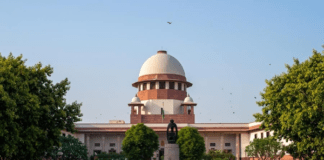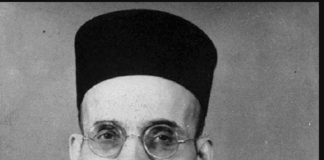The Supreme Court reaffirms that the Hindu Succession Act does not apply to members of Scheduled Tribes unless notified by the Central Government.
In a recent judgment, the Supreme Court has reaffirmed that tribal inheritance remains governed by custom and statute – not the Hindu Succession Act.
In a significant and closely‑watched ruling, the Supreme Court of India (SC) has reaffirmed that the Hindu Succession Act, 1956 (HSA) does not apply to members of Scheduled Tribes (STs) unless the Central Government issues a specific notification. The bench of Justices Sanjay Karol and Prashant Kumar Mishra set aside a directive issued by the Himachal Pradesh High Court which had ordered tribal daughters to inherit property under the HSA rather than under tribal customs. LawBeat+1
What the Court Held
The dispute originated from a 2015 judgment of the Himachal Pradesh High Court. In that case, the High Court had declared that daughters in the State’s tribal areas would inherit property under the HSA instead of customary law – citing an objective of preventing “social injustice and exploitation”. LawBeat+1
However, the SC found that the High Court’s direction went beyond the issues raised by the parties and, crucially, ran contrary to Section 2(2) of the HSA. Section 2(2) states:
“Nothing contained in this Act shall apply to the members of any Scheduled Tribe … unless the Central Government, by notification in the Official Gazette, otherwise directs.” Live Law
Since no such notification had been issued for the tribal communities concerned in Himachal Pradesh, the SC ruled that the HSA did not apply and the High Court’s paragraph‑63 direction was set aside and expunged from the record. LawBeat+1
The bench emphasised that courts cannot, under the guise of progressive interpretation, override the express legislative scheme set out by Parliament and the Constitution (via Articles 341/342 concerning Scheduled Castes and Tribes) or unilaterally apply the HSA to ST communities without the required notification. Lawyer News+1
Why This Matters
Preserving Customary Law
The ruling underscores that for tribal communities covered under the Constitution, their inheritance and property rights may continue to be governed by custom, usage or special legislation rather than by the HSA. That means tribal daughters and sons may not automatically receive equal inheritance shares under the HSA unless the Act is notified to apply.
Gender Equality vs Statutory Exclusion
While the judgment highlights the gender‑equality concerns—it notes that denying tribal daughters rights that non‑tribal daughters receive under the HSA may feel unequal— the Court stops short of rewriting the law. Instead it invited Parliament (and the executive) to examine whether the exclusion should continue. Verdictum+1
Legal Predictability
For lawyers, land‑owners and tribal rights activists, this judgment is a clarity point: If a person is a tribal member as per the notified list, and no notification applying the HSA exists, then customary law must not be supplanted by the HSA via judicial fiat. Any change must originate with the legislature or executive.
What Happened in This Case
- The central appeal (dated October 8, 2025) arose from the Himachal High Court’s 2015 decision, which included an observation that tribal daughters should be governed by the HSA. LawBeat+1
- The SC noted that the observation was not part of the issues framed nor pleaded by the parties, making it an excess of jurisdiction. Live Law+1
- The Court relied on precedent, including the recent case Tirith Kumar & Ors. v. Daduram & Ors. (2024) where the SC held that the HSA did not apply to the “Sawara” tribe because there was no notification. G.R.Hari Legal Research Wing+1
- The ruling reaffirmed that rights for tribal persons may yet be secured via general principles of justice, equity and good conscience (for example under the Central Provinces Laws Act, 1875) when no specific personal law applies. Verdictum+1
Key Legal Provisions & Precedents
- Section 2(2), HSA 1956: Explicitly excludes Scheduled Tribes unless the Central Government notifies otherwise. Live Law+1
- Articles 341 & 342 of the Constitution: Vest the power solely in the President to notify or de‑notify Scheduled Castes/Tribes; courts cannot infer de‑notification. LawBeat+1
- Madhu Kishwar v. State of Bihar (1996): Held that personal law statutes do not apply to tribal communities unless extended. Lawyer News
- Tirith Kumar (2024): SC reiterated non‑applicability of HSA to STs and recommended legislative reform. G.R.Hari Legal Research Wing+1
What This Means Going Forward
- For tribal women and men: The judgment reiterates that automatic rights under the HSA cannot be assumed; they must check whether their tribe is covered by an HSA notification—or whether tribal succession under custom or special statute governs.
- For property disputes: Practitioners must carefully examine tribal status, existence of notifications, and the framing of issues in suits: courts cannot raise the applicability of HSA sua sponte in tribal cases.
- For law‑makers: The Court called upon the Central Government to “examine whether to withdraw the exemption” and consider amending the HSA to bring tribal women’s rights in sync with non‑tribal women. Verdictum+1
Expert Comment
Legal scholars observing the case note that the SC has struck a balance: it refused to impose the HSA on tribes by judicial fiat but kept open the normative question of gender equality. It reframes the issue as a matter for legislative or executive action. In line with the principles of journalism set out by Bill Kovach and Tom Rosenstiel, the Court clearly distinguished law from policy and preserved the separation of powers. Verdictum
From a writing‑perspective (borrowing from Wynford Hicks), the ruling is structured with clarity: the statute, its explicit exclusion, the factual case, and the Court’s reasoning are all clearly laid out—making the article accessible to general readers.
Finally, the decision touches on issues of news consumption and critical perspective (as Alain de Botton suggests): readers of legal news must beware of assuming automatic rights or liberal judgments; the reality is framed by statutory language and constitutional limits.
Conclusion
The Supreme Court’s recent judgment is a reminder that explicit statutory exclusion matters. For tribal communities, the path to equal inheritance rights under the HSA remains barred unless the government acts. The ruling is not a denial of justice; rather, it is a pointer to democracy’s process: Parliament and the executive may choose to amend the law—but courts cannot substitute themselves for that role.
As legal practitioners, tribal rights activists, and policy‑ makers consider the next steps, this judgment provides both clarity and a prompt. The question that now looms large: will the Central Government respond to the Court’s invitation to extend the HSA, or will tribal succession continue to evolve under custom and special statute?





